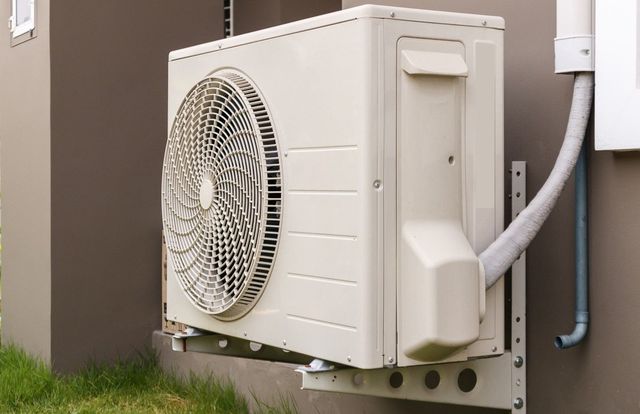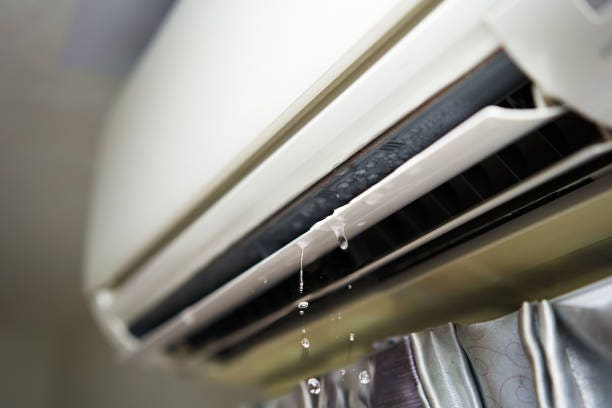When the temperature outside begins to rise, there’s nothing quite as satisfying as stepping into a cool, air-conditioned home or office. Air conditioners are a crucial part of our lives, especially during the scorching summer months. However, finding a puddle of water around your AC unit is an unwelcome surprise that can leave you feeling puzzled and frustrated. Fortunately, understanding the common reasons why your air conditioner is leaking water can help you address the issue promptly and prevent potential damage to your property.
1. Clogged Drain Line
One of the most frequent causes of water leakage in air conditioners is a clogged drain line. Over time, dirt, mold, algae, and other debris can accumulate in the drain line, obstructing the flow of water and causing it to back up into the unit. This blockage can lead to water leaking from the AC unit and potentially causing water damage to the surrounding area.
2. Dirty Air Filter
A clogged or dirty air filter can restrict airflow over the evaporator coil, causing the coil to freeze. When the ice on the coil eventually melts, it can overwhelm the condensate pan and cause water to leak from the unit. Regularly replacing or cleaning the air filter can help prevent this issue and keep your air conditioner running smoothly.
3. Damaged or Disconnected Drain Pan
The drain pan, located beneath the evaporator coil, is designed to collect condensate and safely remove it from the unit. However, if the drain pan is damaged, rusted, or not positioned correctly, it can lead to water leakage. Additionally, a disconnected drain pan or a faulty condensate pump can also cause water to overflow and leak from the AC unit.
4. Low Refrigerant Levels
Low refrigerant levels can lead to a drop in pressure within the evaporator coil, causing it to freeze and eventually thaw, resulting in water leakage. If you suspect that your air conditioner is low on refrigerant, it’s essential to contact a professional HVAC technician to inspect and recharge the system properly.
5. Improper Installation
If your air conditioner was not installed correctly, it can lead to a range of issues, including water leakage. Improperly fitted or disconnected drain lines, tilted or unlevelled AC units, and poorly sealed connections can all contribute to water leakage problems. Hiring a qualified HVAC technician to assess and rectify any installation issues is crucial for preventing recurring leaks.
6. Overworking the AC Unit
Running your air conditioner non-stop or consistently setting it to the lowest temperature can cause the evaporator coil to ice up and produce excessive condensate, resulting in water leakage. To prevent this, it’s essential to set your thermostat to a moderate temperature and provide your AC unit with regular maintenance to keep it functioning optimally.
7. External Temperature Changes
During periods of high humidity and drastic temperature fluctuations, air conditioners can experience increased condensate production. If your AC unit is not equipped to handle these changes, it may lead to water leakage. Ensuring that your air conditioner is adequately sized and maintained to handle varying weather conditions can help prevent this issue.
Upon discovering water leakage from your air conditioner, it’s essential to take immediate action to prevent further damage and ensure the continued efficiency of your unit. Here are some steps you can take:
1. Inspect and Clear the Drain Line
Regularly inspect and clear the drain line to remove any accumulated debris and prevent clogs. This can be done using a wet/dry vacuum or by contacting a professional HVAC technician to perform a thorough cleaning.
2. Replace or Clean the Air Filter
Check and replace the air filter if it’s clogged or dirty to ensure proper airflow and prevent the evaporator coil from freezing. Regularly maintaining the air filter will also improve the air quality in your home or office.
3. Check the Drain Pan and Condensate Pump
Inspect the drain pan for damage or misalignment and ensure that the condensate pump is functioning correctly. Address any issues promptly to prevent water from overflowing and causing leaks.
4. Schedule Professional Maintenance
Regular maintenance by a qualified HVAC technician is essential for identifying and addressing potential issues with your air conditioner before they escalate. Professional inspections, cleaning, and adjustments can help keep your unit running efficiently and prevent water leakage.

Credit: www.mid-fla.com
5. Monitor Your Thermostat Settings
Be mindful of your thermostat settings and avoid overworking your air conditioner. Setting the thermostat to a moderate temperature and allowing the unit to rest periodically can help prevent the evaporator coil from freezing and causing water leakage.
6. Address Installation Issues
If you suspect that your air conditioner’s installation may be contributing to water leakage, contact a reputable HVAC technician to assess and rectify any installation issues. Proper installation is crucial for the optimal performance of your AC unit.
Water leakage from your air conditioner can be a frustrating and potentially damaging issue, but understanding its common causes and taking proactive measures to address and prevent it can help you enjoy uninterrupted comfort during the warmer months. By staying attentive to your air conditioner’s maintenance needs and promptly addressing any signs of water leakage, you can ensure the efficient and reliable performance of your cooling system for years to come.

